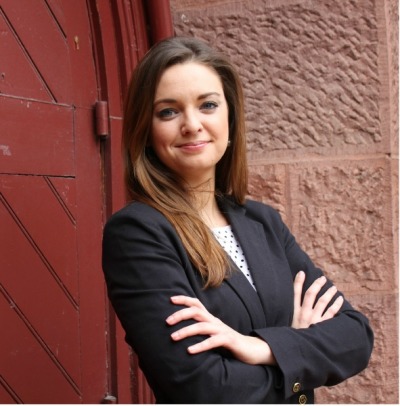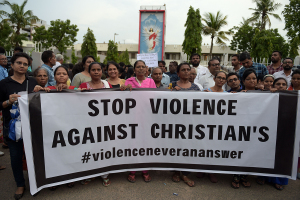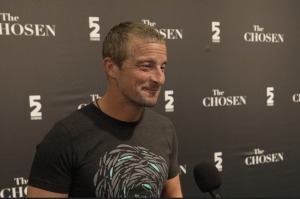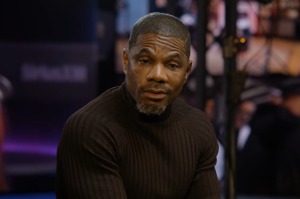'Gay Christian' Conference Features 'Third Way' Pastor

"What if I'm wrong?" recalled Rev. Danny Cortez to over 1700 people gathered in Portland, Oregon for the annual Gay Christian Network Conference (GCN), January 9th. Remembering a time where he was conflicted about Christian teaching and homosexuality, Cortez said, "Then I realized maybe I no longer believe the things I use to believe. I think I no longer believe my traditional understanding of Scripture. And I thought oh dear God, did I just become liberal?"
Cortez is the pastor of New Heart Community Church in La Mirada, California. Dubbed a "third way" church, Cortez and his congregation declare same-sex unions can be blessed by God. This unorthodox stance on marriage and sexuality landed Cortez and New Heart Community Church's membership within the Southern Baptist Convention at odds, and ultimately, lead to the church's dismissal in 2014.
The Eight-Year Journey
The biggest question Cortez wrestled with before changing his mind in regards to traditional teachings on sexuality and marriage was, "are we applying Scripture correctly?" So the "third way" pastor went on an eight-year journey to understand why, if we were following Christ's teachings, did the Lesbian Gay Bisexual Transgender (LGBT) community feel judged and marginalized.
"I went on this journey and I realized that I had a pretty homophobic upbringing. When I heard the word homosexual or thought about people who were homosexuals immediately I thought of disgusting, just sexual, perversion kind of things." Cortez continued, "I knew that if I were going to engage in this study I needed to detox myself."
To "detox" Cortez found himself in the middle of Hollywood's gay community. According to Cortez, "Slowly but surely my stereotypes of the gay community began to change. I began to realize these were beautiful people. They were normal."
The Bible apparently deserved a detox too, because according to Cortez, "As I began through my study I decided that it would be good for me to not read into the Scriptures the Western understanding of what homosexuality is."
He continued, "The more I read into [Greek and Roman antiquity] the more I realized this homo-erotic culture in antiquity was very perverse. I mean, there was pedophilia, there was cult prostitution, there was slavery, all these things and I remember thinking this was the reason why Paul and others condemned this because there was so much evil." Cortez explained that because these "homo-erotic" characteristics did not reflect the gay people he knew, traditional Christian teaching must have got it wrong.
Cortez's study, combined with his 15-year-old son expressing his own same-sex attraction, encouraged he and his wife to attend the 2014 GCN conference in Chicago. It was after hearing the stories and perspectives of gay Christians that Cortez came to "realize that the theology was not as important as the aspect of family."
The Break-Up
At the 2014 GCN conference, Cortez also believed his orthodox view of marriage had been "part of the problem." Cortez recalled thinking, "I have been a part of the Evangelical community of pastors that had been bringing shame to [the LGBT] community." At last year's GCN open mic and to the GCN audience Cortez shared, "I'm so sorry. I am so sorry for the shame and the hurt that our teaching has caused you. I'm so sorry to make you feel like there was something wrong with you. For not valuing who you are."
After the 2014 conference Cortez knew that he had to go back and tell his church that he no longer believed homosexuality was a sin. "The leaders of the church realized I had fallen off our statement of faith and traditional understanding of the Scriptures and there was this realization that I needed to be terminated," said Cortez. "But they gave me one more opportunity to preach and I told my story."
For four months the church listened to lectures and arguments from various sides of the same-sex theological debate. After that period, the New Heart Community Church went through a "painful split." According to Cortez, approximately 50 percent of the congregation voted to keep him on as pastor while 40 percent of all members left the church.
But for Cortez, it wasn't about tradition, nor theology. Instead, his new worldview rested upon the questions, "What gives life? What is more compassionate?"
Addressing the Critics
In the aftermath of his decision to move away from orthodoxy, Cortez shared that fellow Christians would ask him, "How can you as a pastor accommodate sin?" Cortez's response was simply that "in the field" traditional Christian teaching on marriage "is not working." Cortez said, "We need to think long and hard about the way we are interpreting Scripture, because when I look at Jesus interpreted Scripture it was to give life."
Eventually, the Southern Baptist Convention (SBC) heard of Cortez's "third way" teaching on same-sex issues. Cortez recalled traveling to the SBC headquarters in Nashville, Tennessee. He was invited to speak to the 83 Executive Committee directors. For two days, he met with Southern Baptist leaders and awaited the Executive Committee's vote on whether or not to dismiss Cortez's church for abandoning the sanctity of marriage.
In a final address to his Southern Baptist detractors Cortez said, "[I]n a couple of hours you will most likely move to dismiss our church, but I want you to know that the vote that will happen in a couple of hours will not matter in the eyes of God, because God will still see us as one Church."
Cortez directed his last thoughts to his Evangelical friends, stating, "The goal of our faith is not marriage equality. The goal of our faith is not religious freedom. The goal of our faith is to love."
It is unlikely that Cortez's Evangelical brothers and sisters will take up his "third way" and deviate from 2,000 years of agreed upon teachings in the West and East on marriage. Not because Evangelicals have not love, but because we love with the firsthand knowledge that Jesus Christ's transformation of our selves is, ultimately, what offers real life.





























